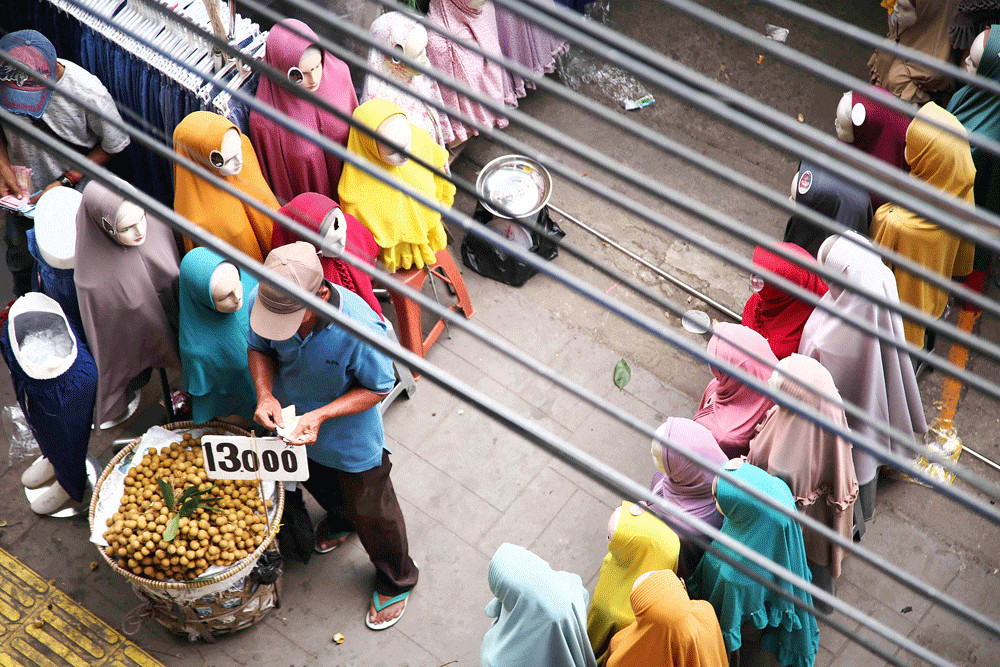Popular Reads
Top Results
Can't find what you're looking for?
View all search resultsPopular Reads
Top Results
Can't find what you're looking for?
View all search resultsThe importance of economic intelligence in South-South Cooperation
South-South Cooperation is projected to contribute to economic growth of 57 percent of world GDP in 2030.
Change text size
Gift Premium Articles
to Anyone
I
n a discussion on the book review of the "South-South Cooperation Handbook" in the Department of International Relations, the University of Indonesia on in December, last year, one of the booksellers said when he came to a university in Yogyakarta, he asked the students whether South-South Cooperation ( SSC) was needed? Only 30 percent of students agreed with the cooperation. The students mostly argued that why should we help other countries when our people are mostly still in difficult condition.
The answer was different when the same question was asked to students in Bandung. The answer that agreed with this cooperation reached 70 percent. Maybe differences in answers have to do with differences in student background.
This article does not discuss the differences in student answers above. But the writer honestly also wondered what benefits would be obtained from the SSC? Is it just "charity" to help more underdeveloped countries than Indonesia? Of course not, because even developed countries in providing assistance to developing countries always have economic motives inserted, or the term "no free lunch".
As understood that SSC is a term used by policymakers and academics to describe the exchange of resources, technology, and knowledge between developing countries. SSC is development cooperation among developing countries in order to achieve mutual independence based on solidarity, equality and mutual benefit. This collaboration began with the formation of a Unit for the SSC to promote trade among its members by the United Nations in 1978.
One of the main objectives of the SSC is to strengthen and improve economic relations, especially joint investment in energy and oil, and commercial banks. One form of the SSC is that Venezuela signed an oil agreement with South Africa and a memorandum of understanding with Sierra Leone to form a joint mining company in 2009. Meanwhile, Brazil has developed an increasingly successful model of giving more than $ 1 billion in foreign aid per year which focuses on technical expertise and transfer of knowledge and expertise.
Indonesia has a lot to do in SSC. Since becoming the chairman of the NAM in 1992, Indonesia has firmly launched foreign aid, especially technical cooperation with developing countries within the SSC framework. However, how much Indonesia's contribution has not been recorded accurately because its implementation is spread across various Ministries and Institutions.
Some programs that have been implemented by Indonesia include the Development Program, Good Governance and Economic Programs. This assistance program includes poverty reduction, education, livestock and agriculture, education, disaster risk management, planning and budgeting and infrastructure. For good governance includes the development of democracy, peace, conflict resolution, law enforcement; in the economic field including macroeconomic management, public finance, microfinance and MSMEs.
Recorded recipients of Indonesian technical assistance in 2017 consisted of 15 programs for 31 countries and 356 participants who had been given through the Foreign Affairs Ministry. "The principles of the implementation of Indonesia's SSC are solidarity, mutual benefit, comprehensive and sustainable, transparency and accountability and in line with national development priorities," he added.
SSC is projected to contribute to economic growth of 57 percent of world GDP in 2030. Indonesia is among a group of developing countries along with Brazil, China, India, Mexico, Russia and Turkey. Meanwhile, according to the PricewaterhouseCoopers (PwC) report, developing countries will continue to be a driver of global economic growth. By 2050, The seven emerging countries (E7 countries) including China, India, Brazil, Mexico, Russia, Indonesia and Turkey can increase their GDP contribution from around 35 percent to almost 50 percent. China is projected to be the largest economy in the world, followed by India and Indonesia.
The problem is how the government can optimize the economic benefits of the SSC. The saying "while diving we drink", It means that through SSC it is not just the charity that we spread, but there are also benefits that we can get. For this reason, in this SSC, the government together with the Indonesian Chamber of Commerce and Industry (Kadin) and academics need to establish an "economic intelligence" institution that serves to bridge the interests of the business world in countries that receive assistance from the Indonesian Government. This economic intelligence will then analyze what investment opportunities are attractive in the destination country, export of what products can be penetrated. This institution must also be able to lobby officials in the destination country to obtain fiscal facilities for investments that will be made by Indonesian businesses.
***
The writer is a researcher at the Fiscal Policy Office, Ministry of Finance.










